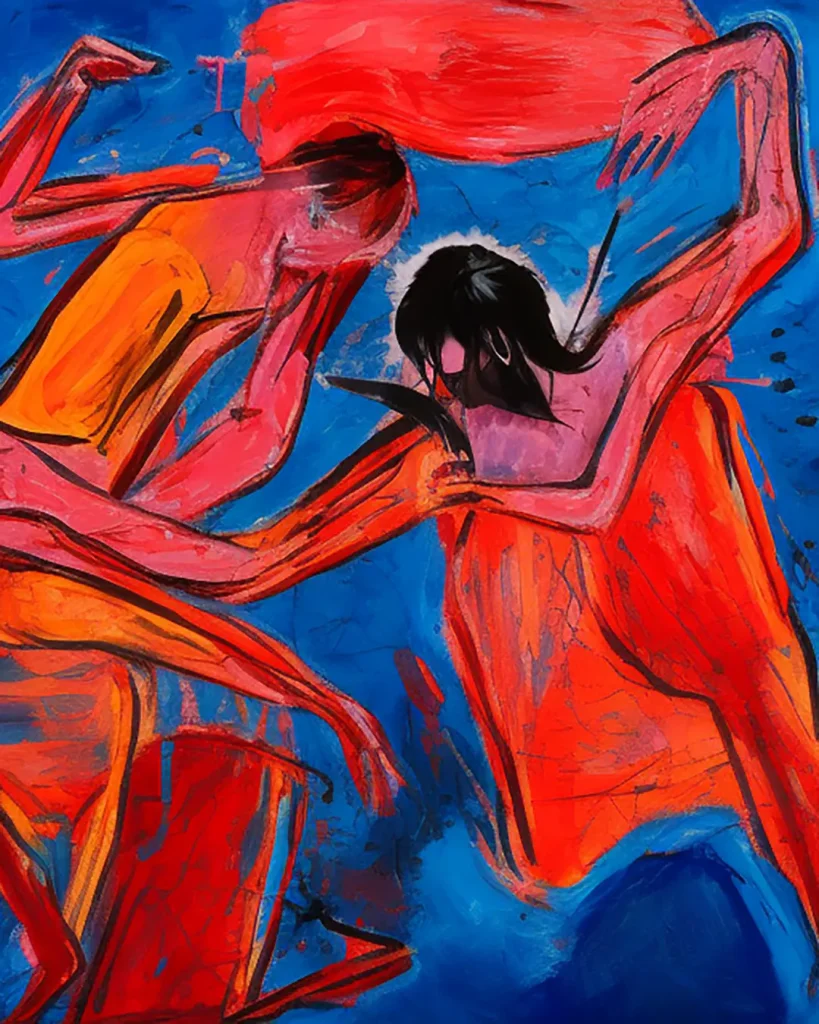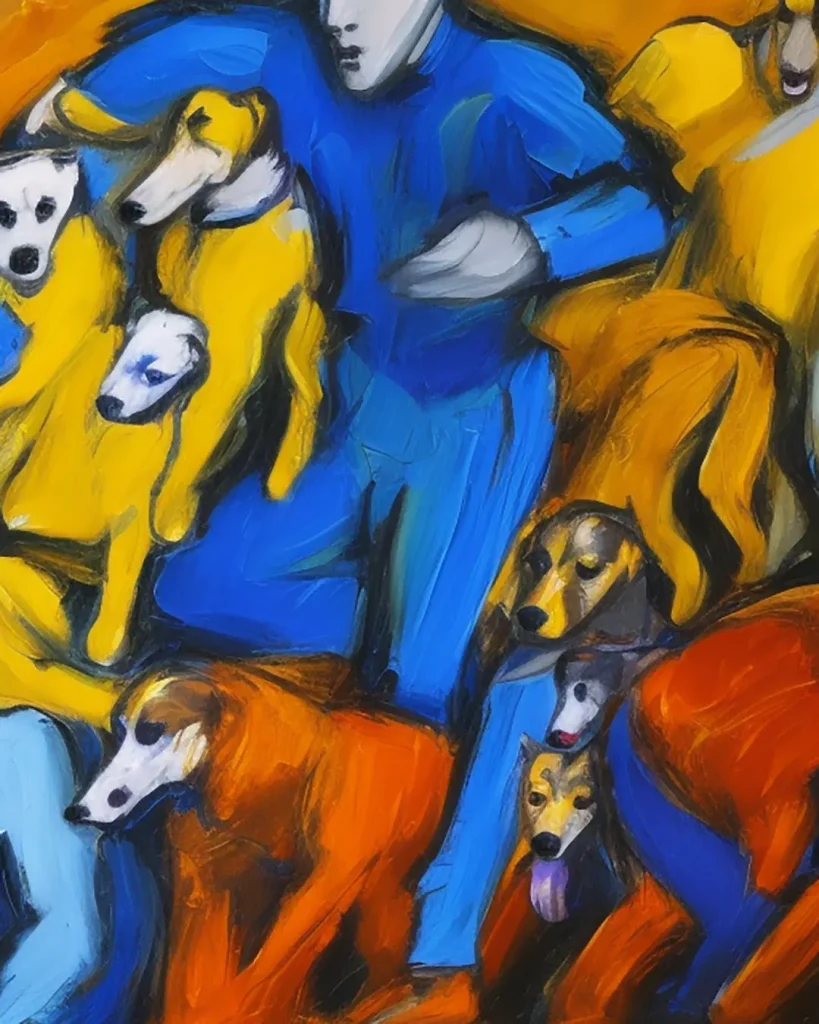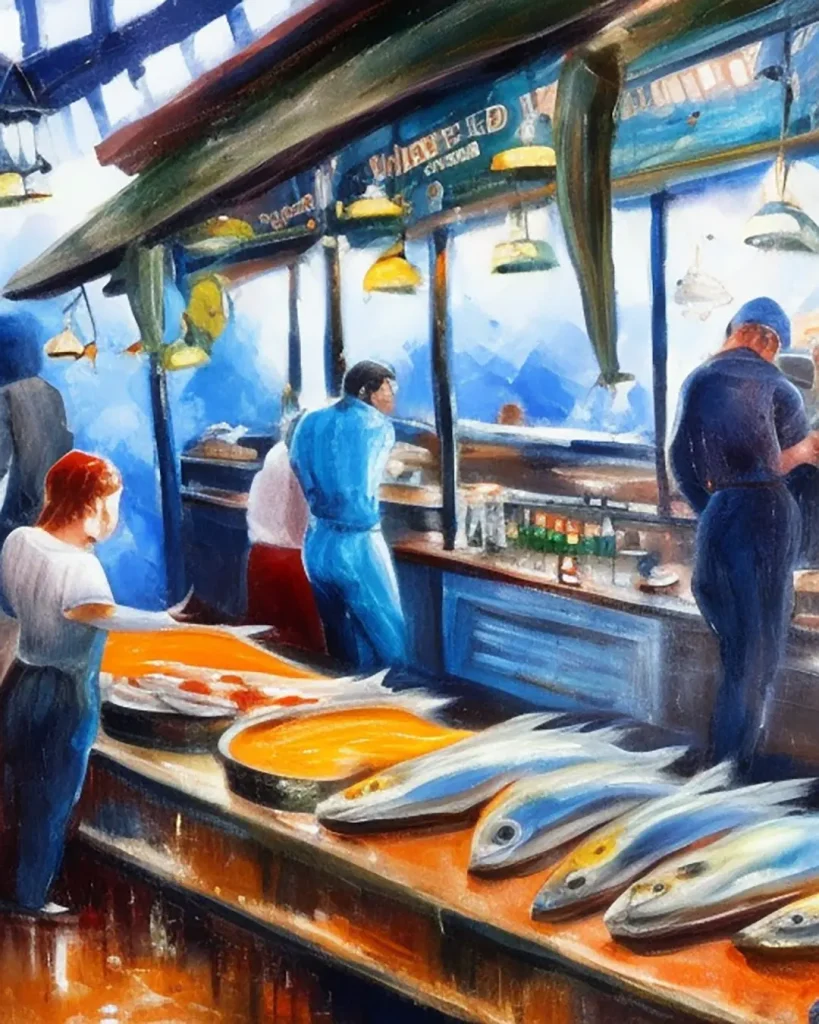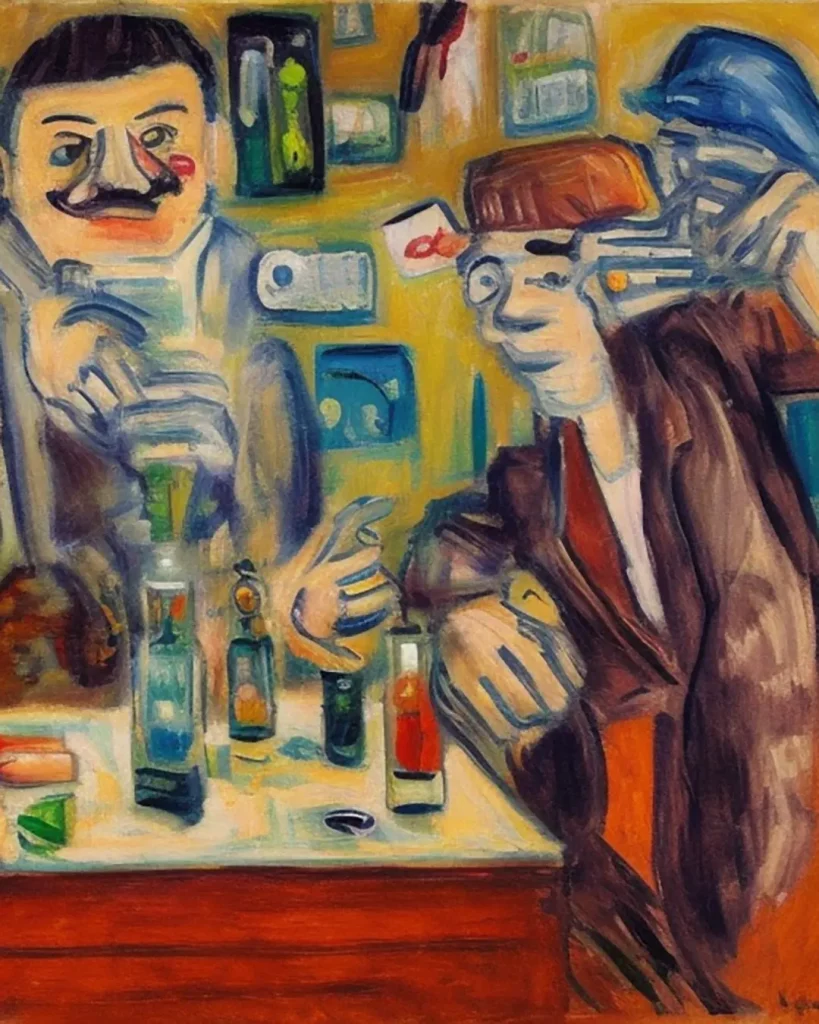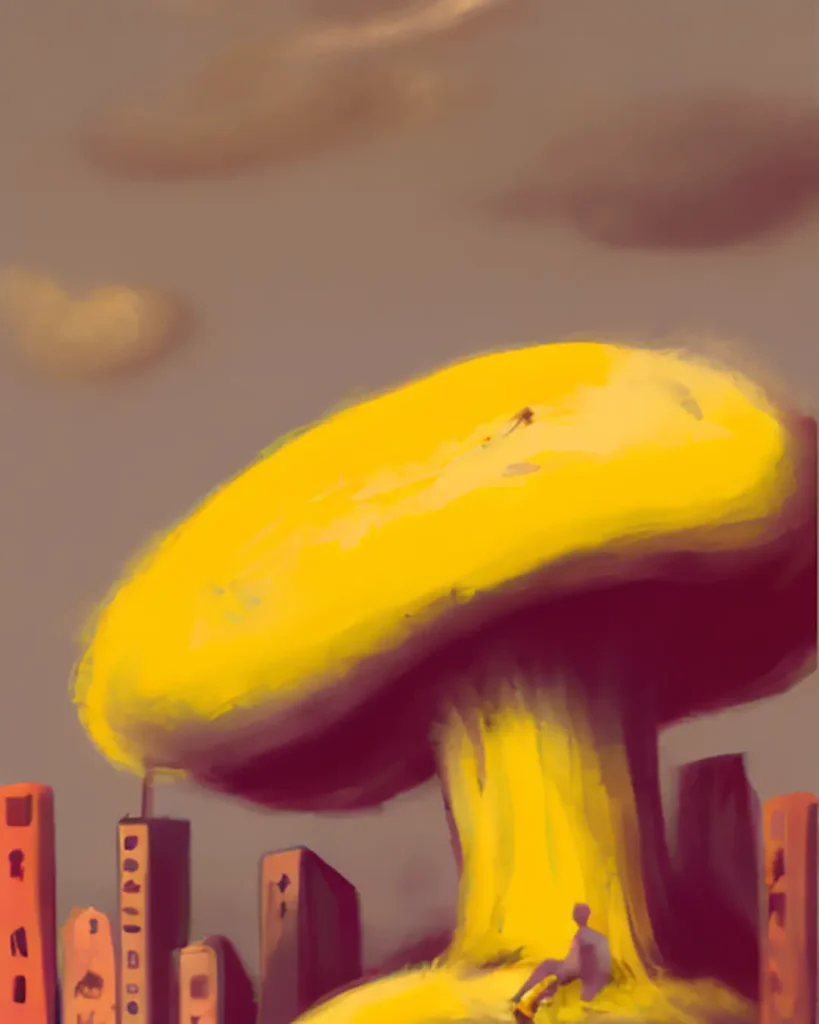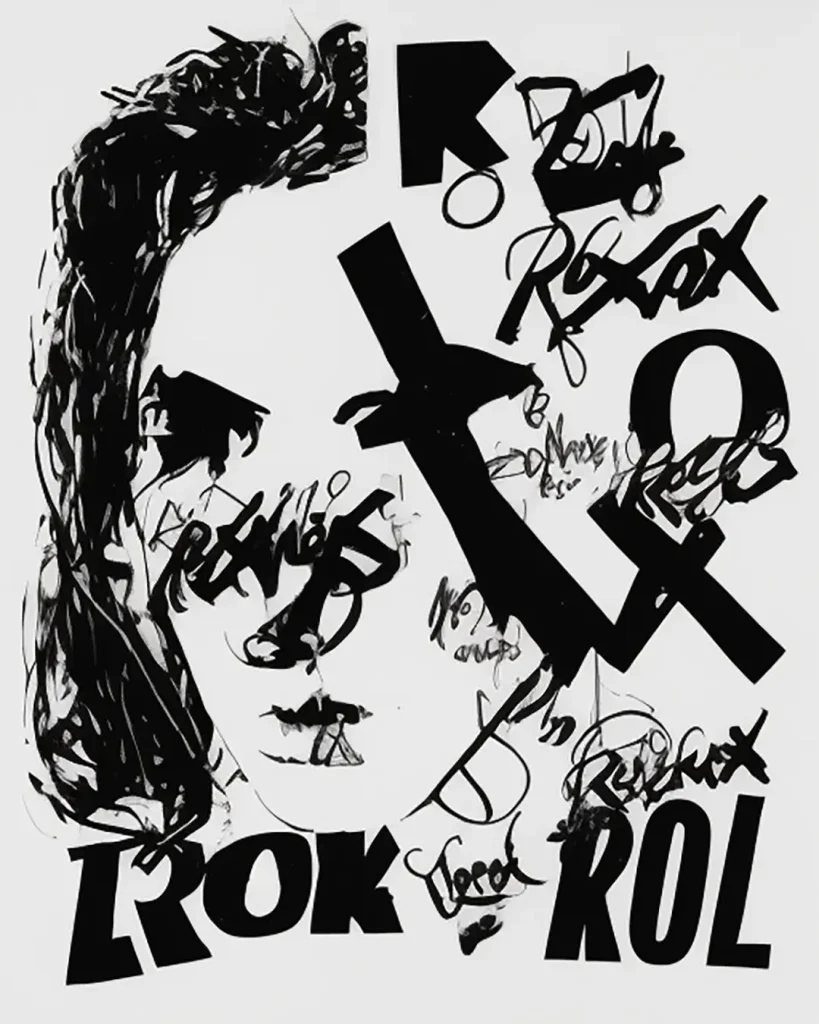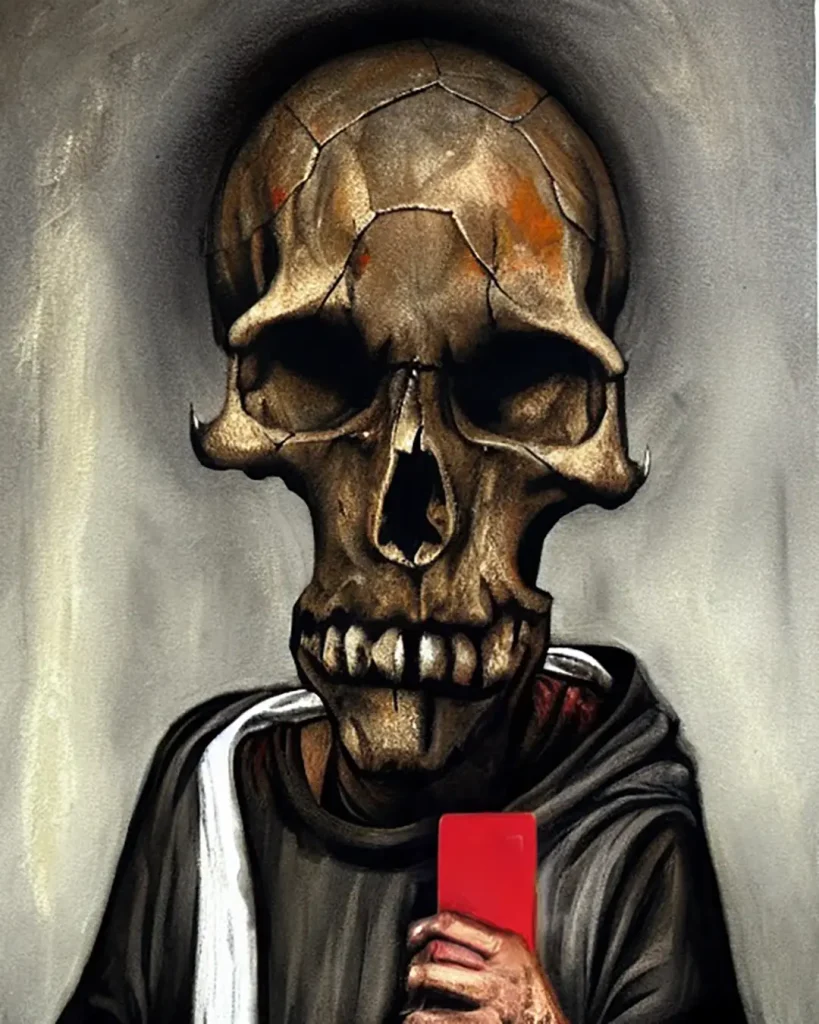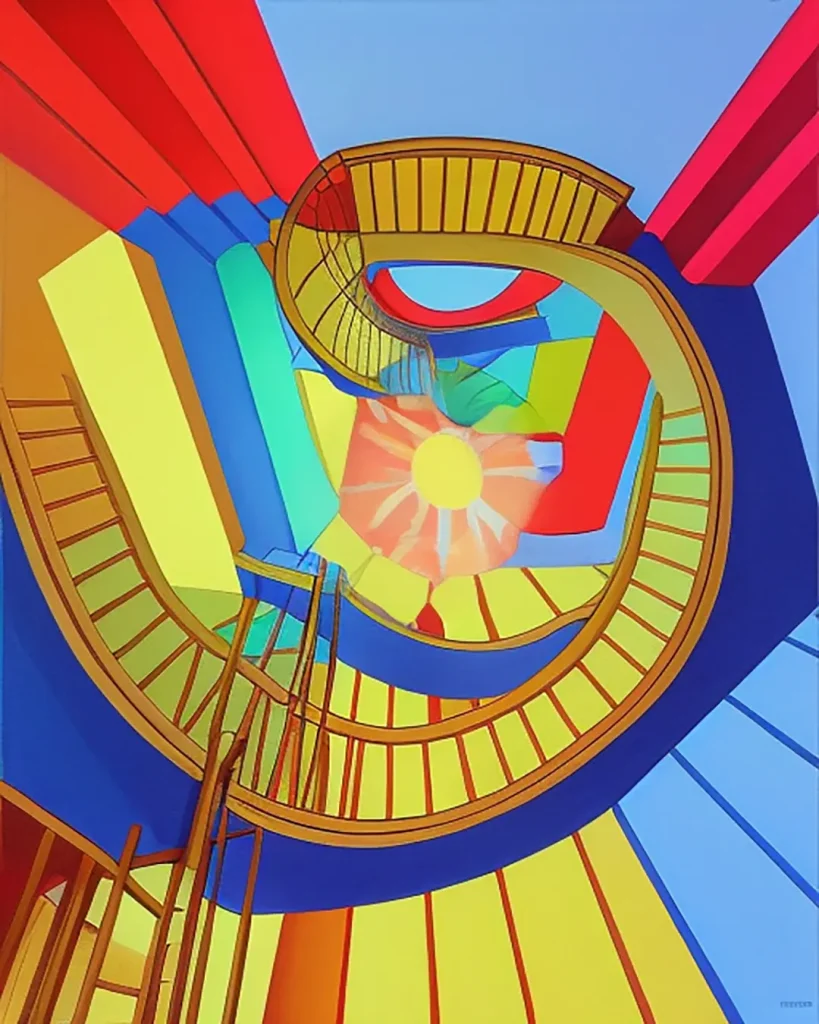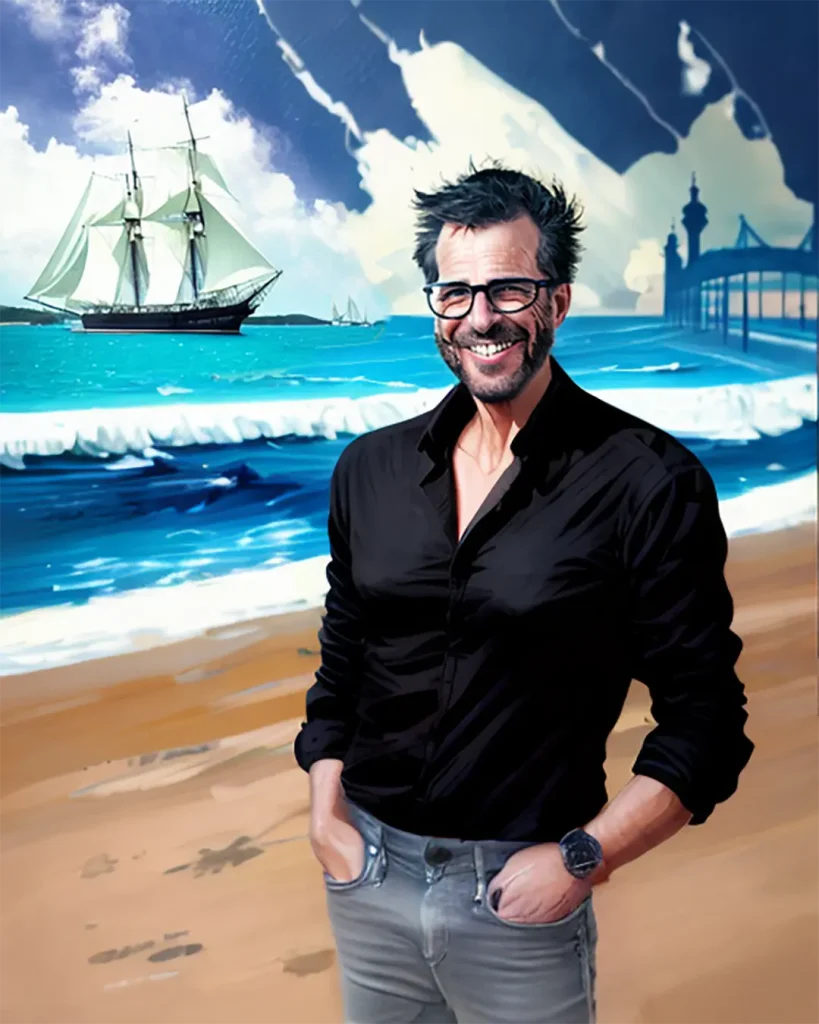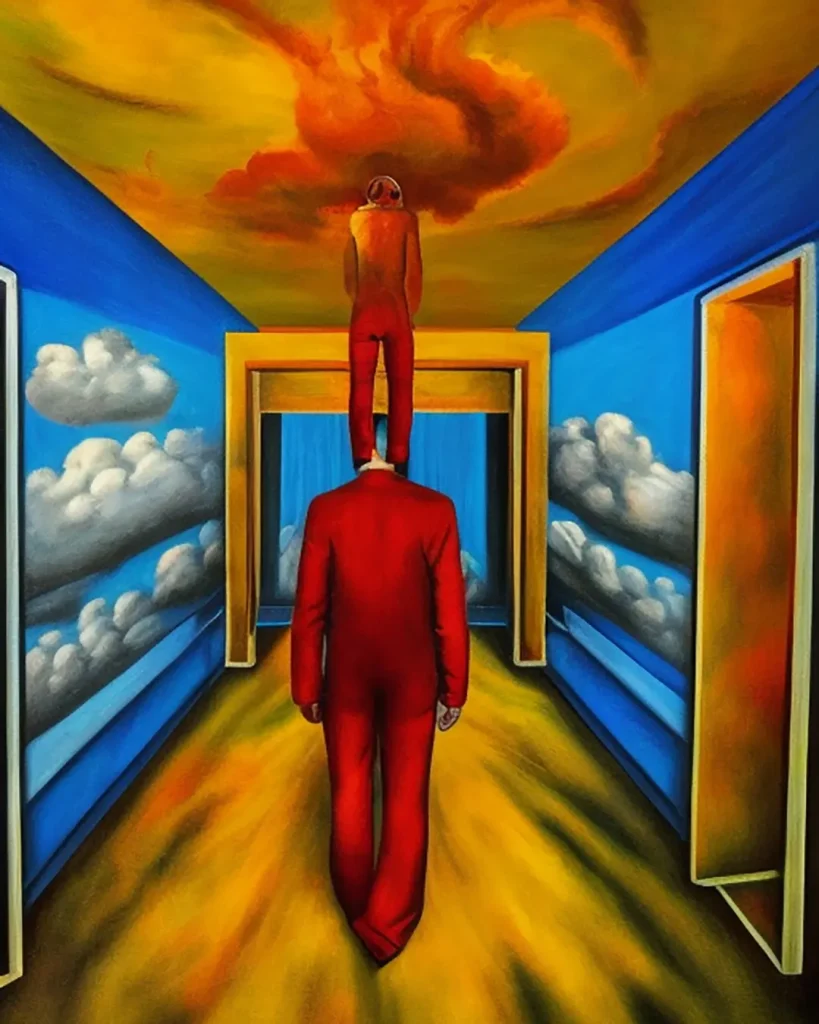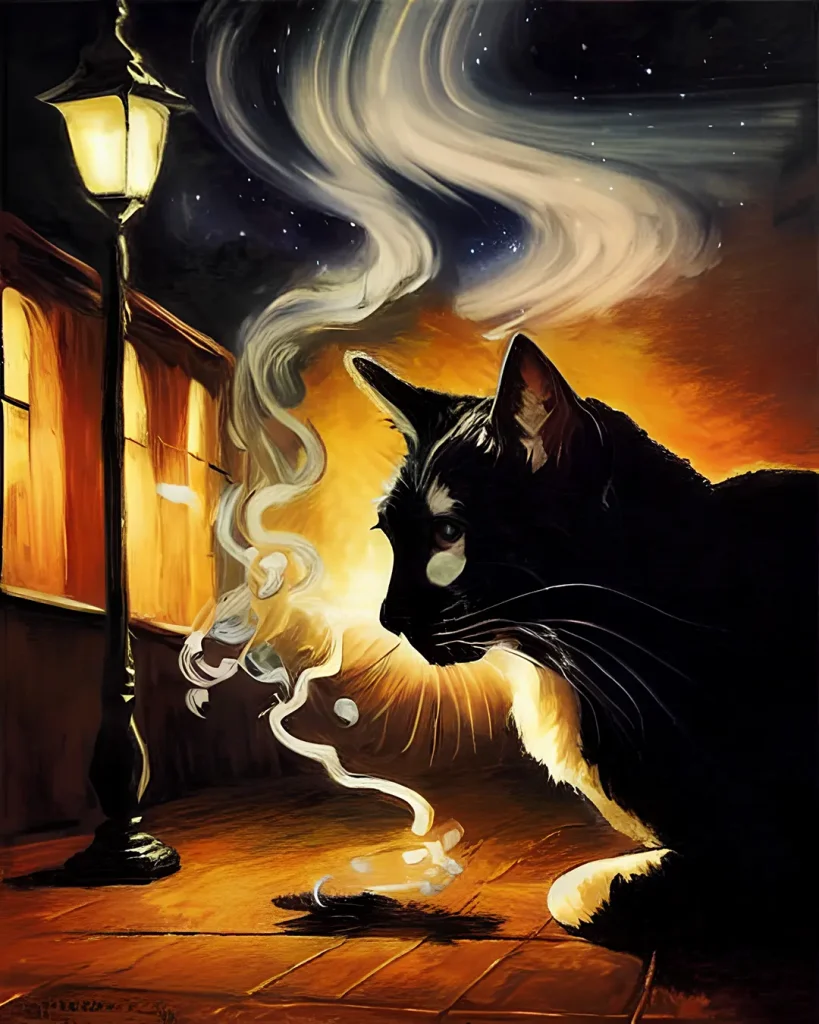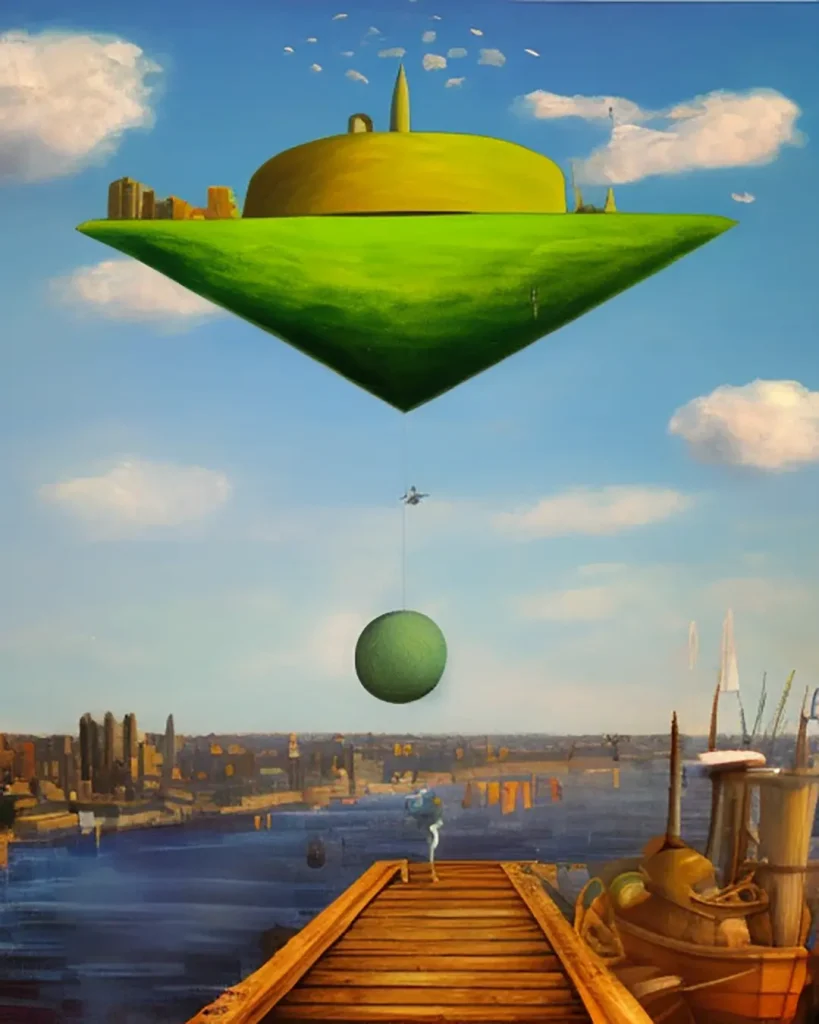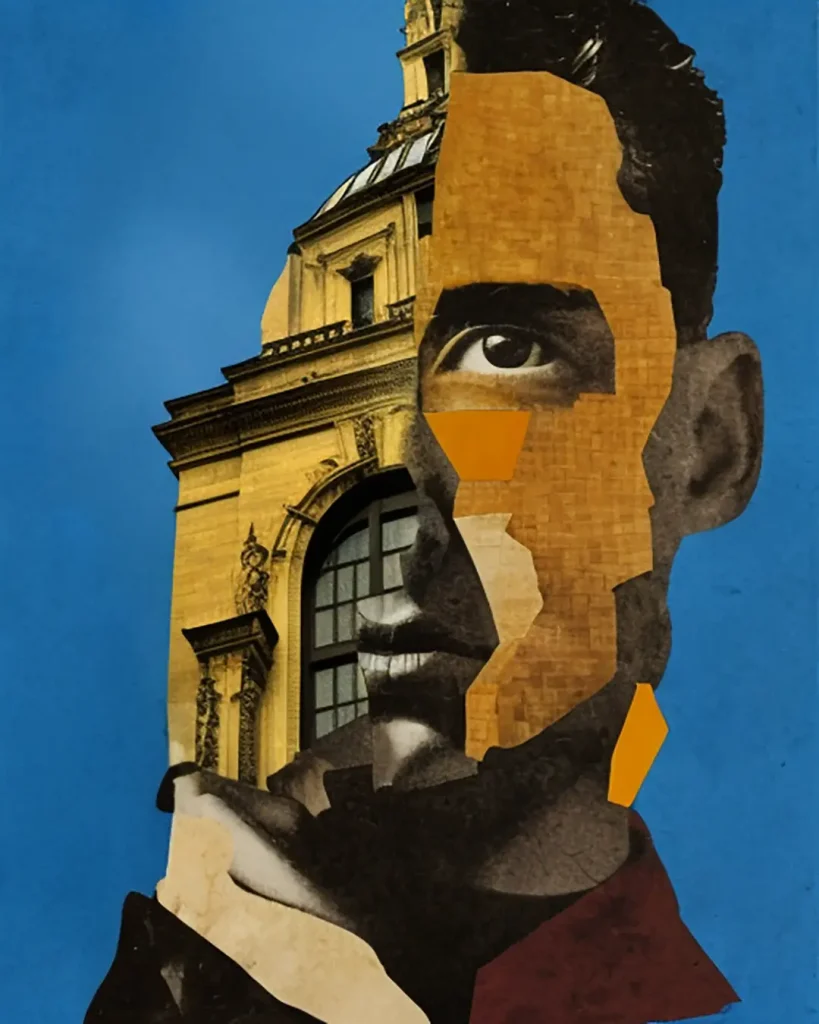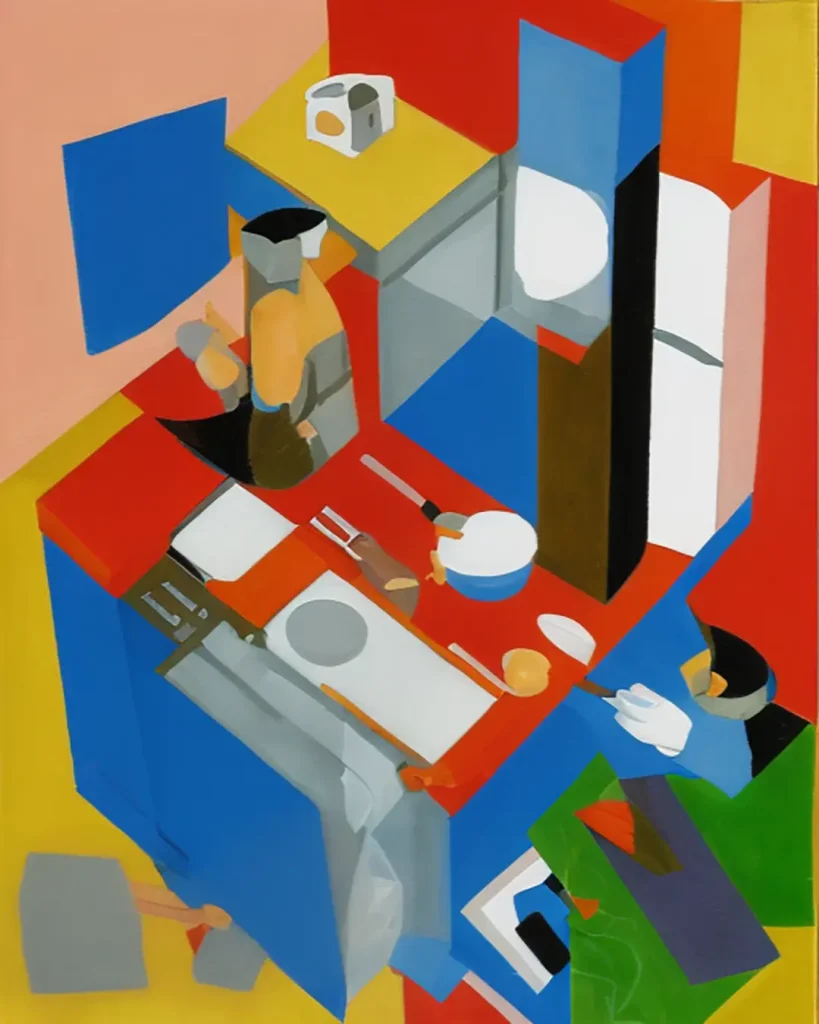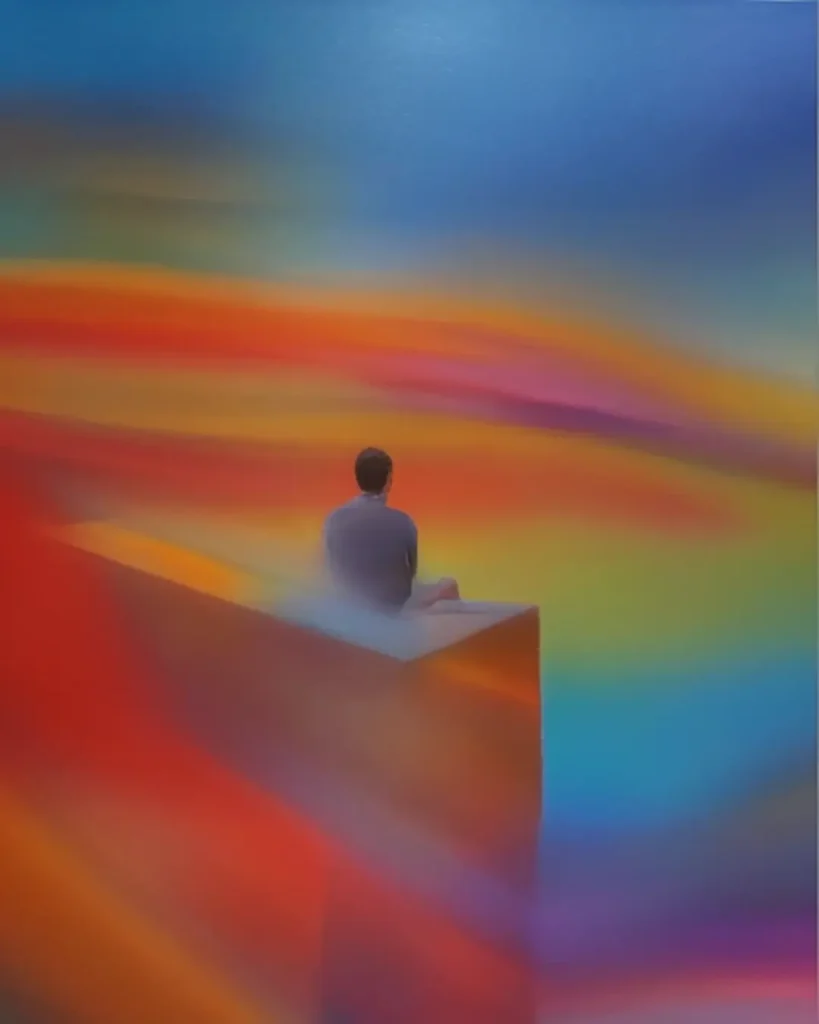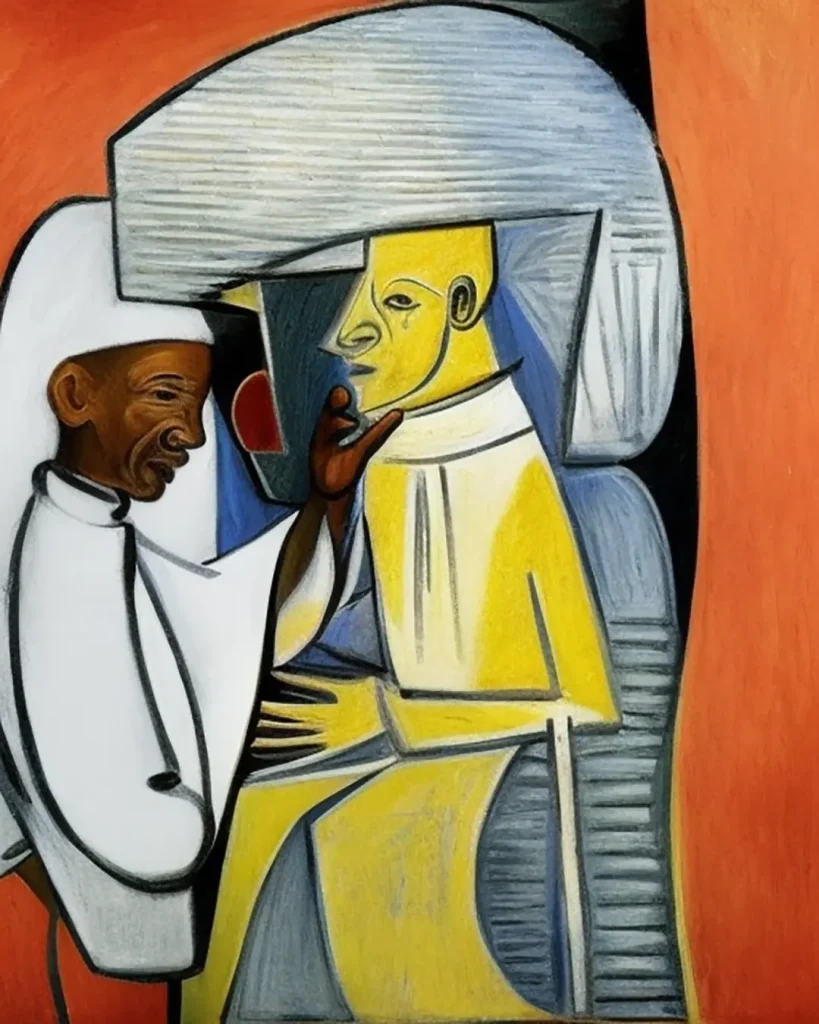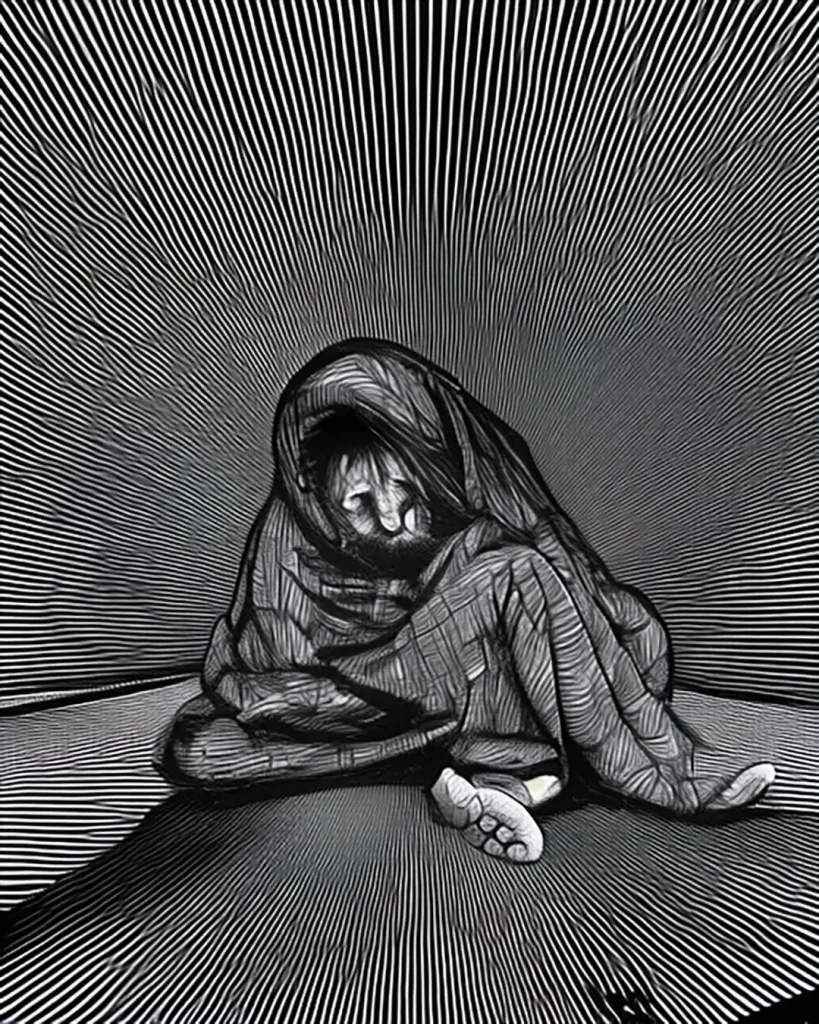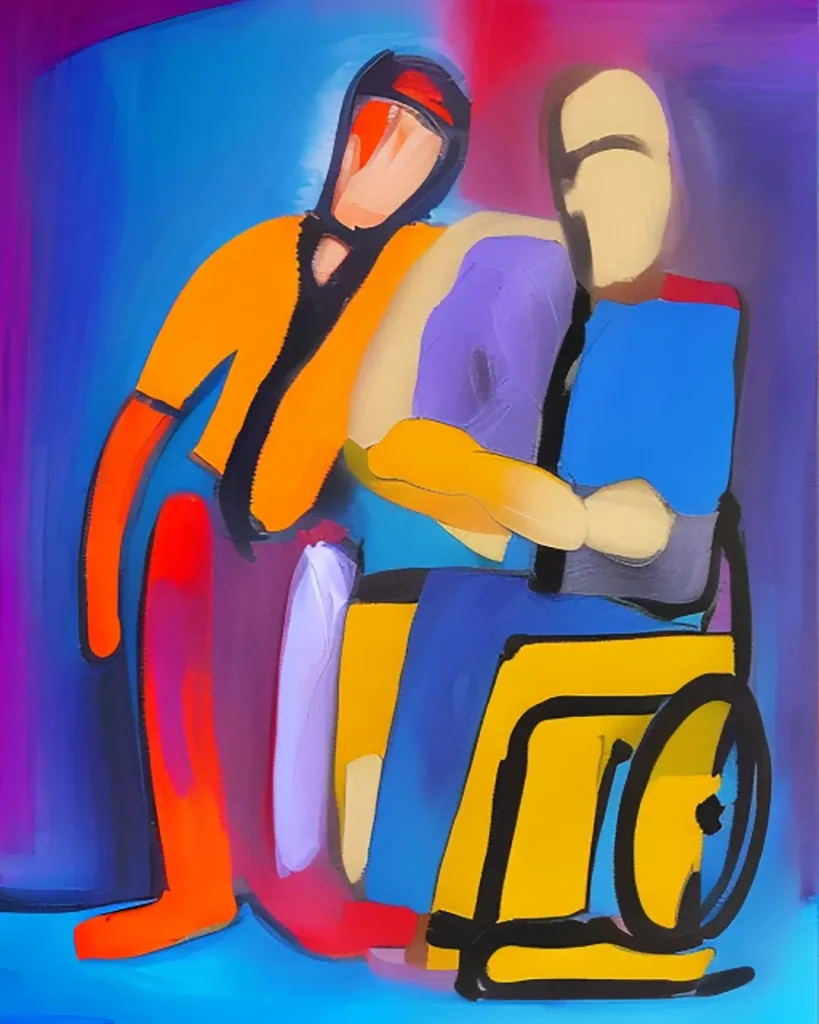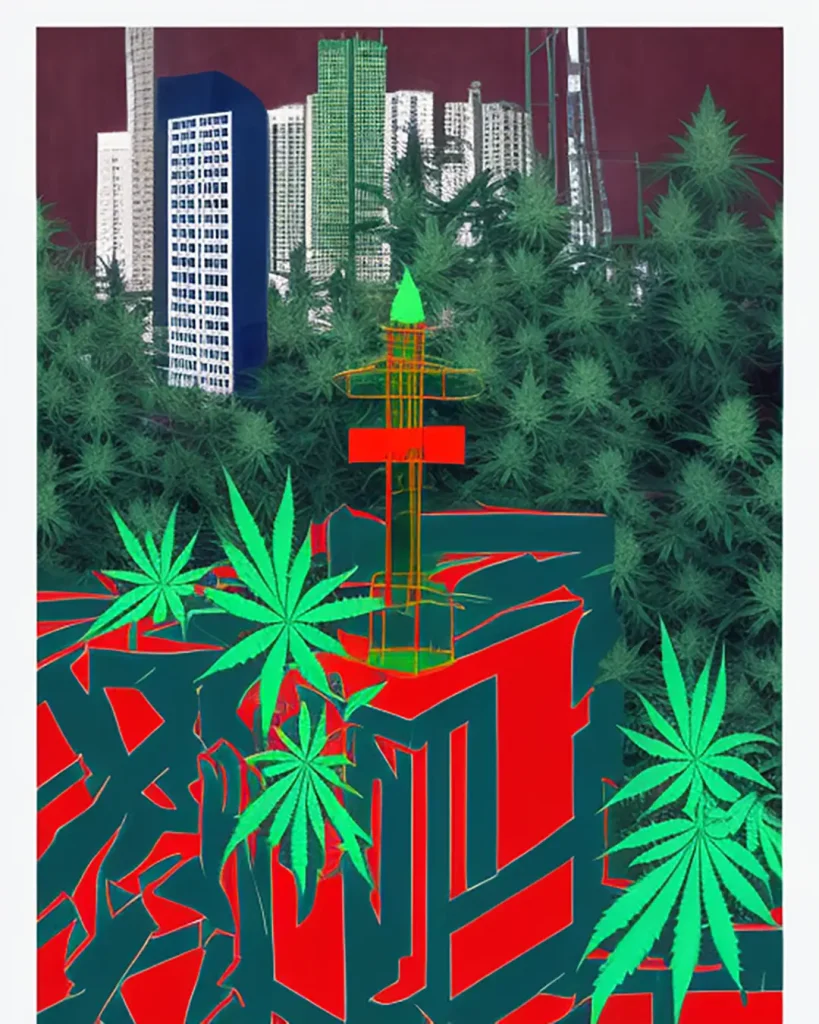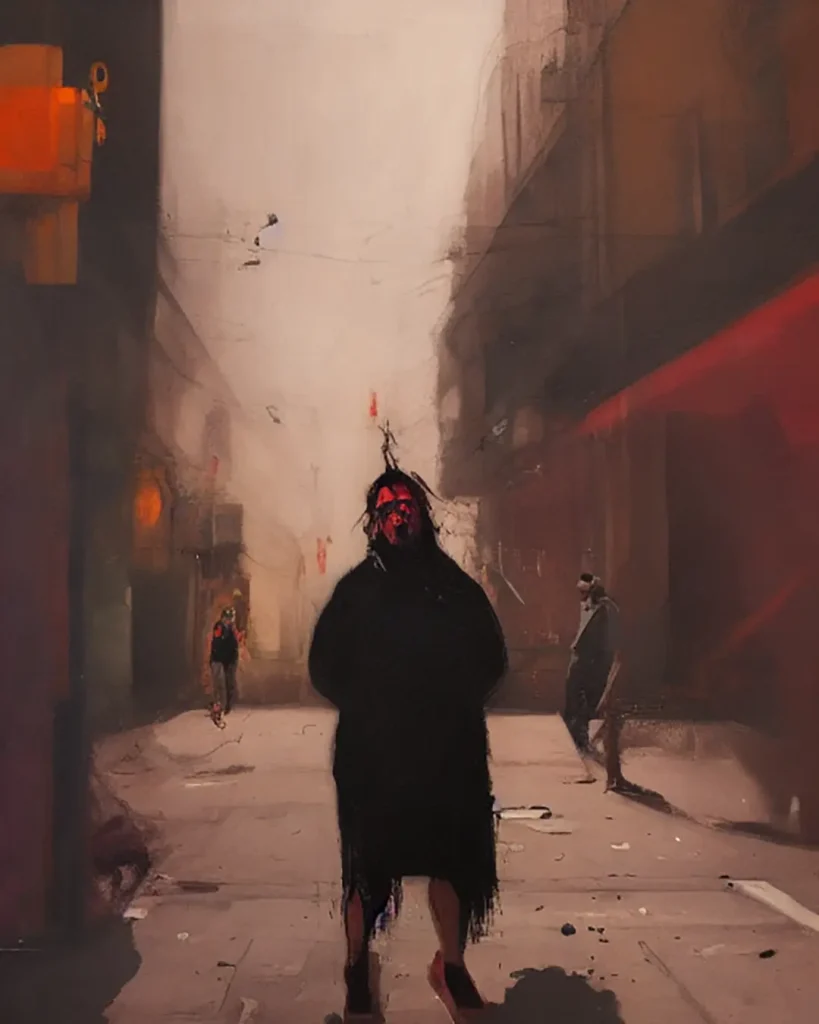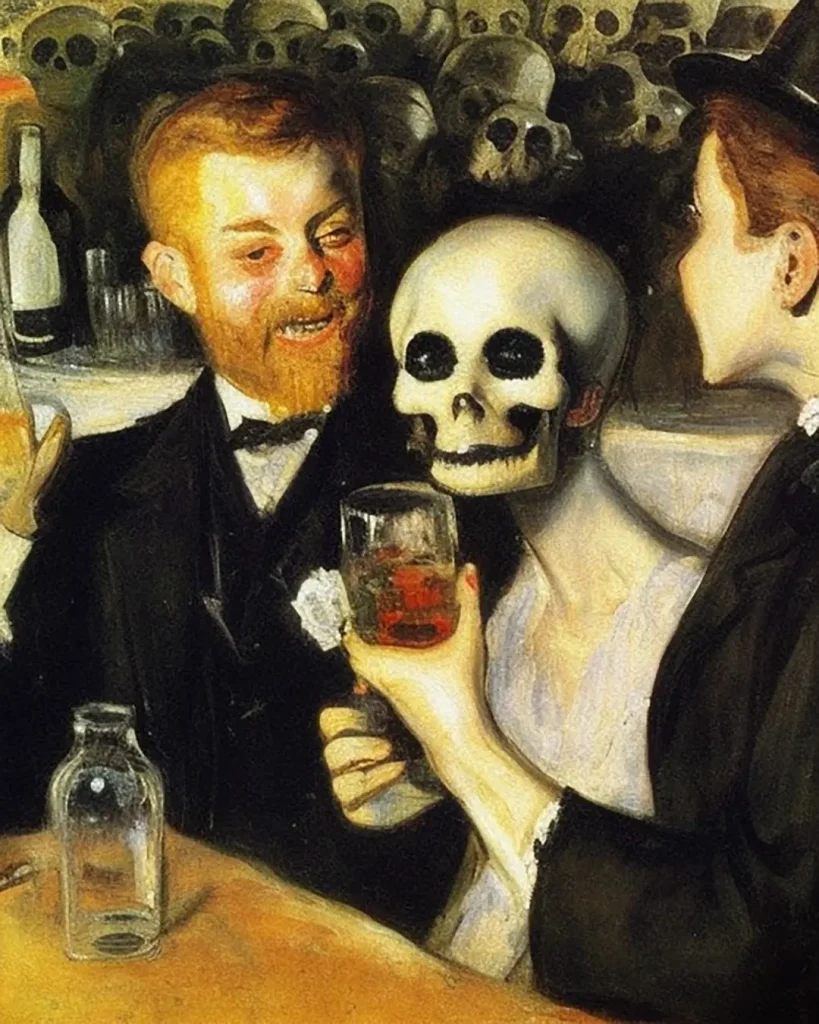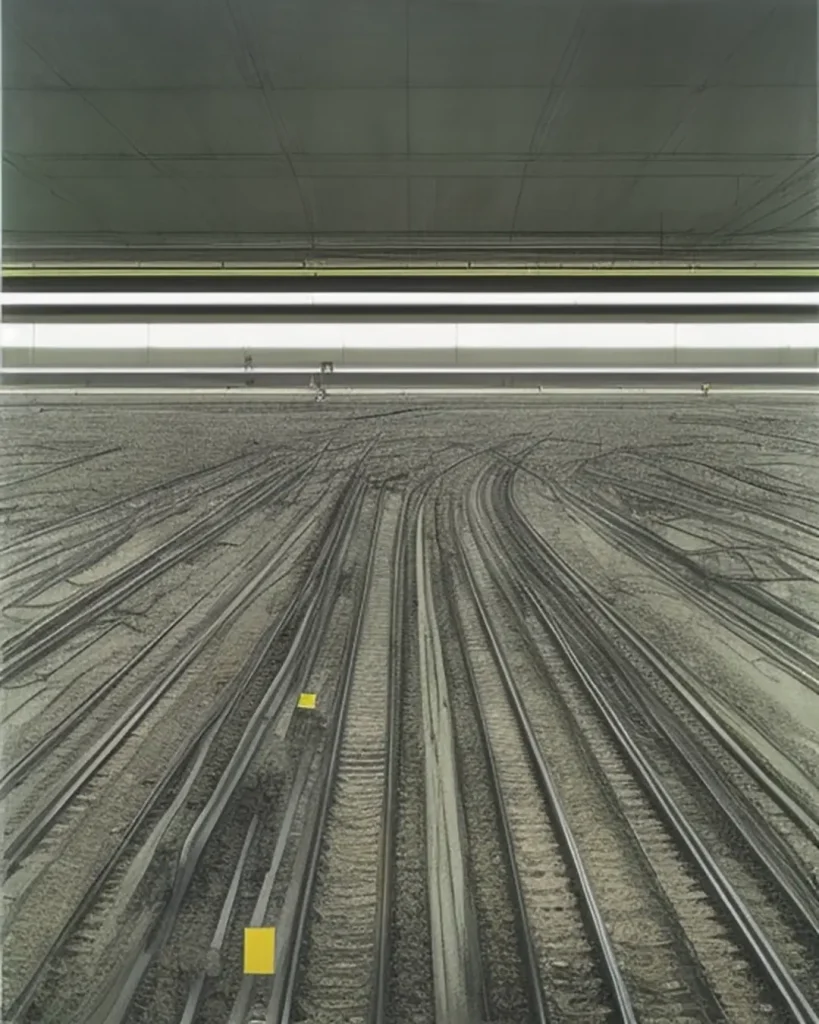The art of the story
„Eine feste Bank“
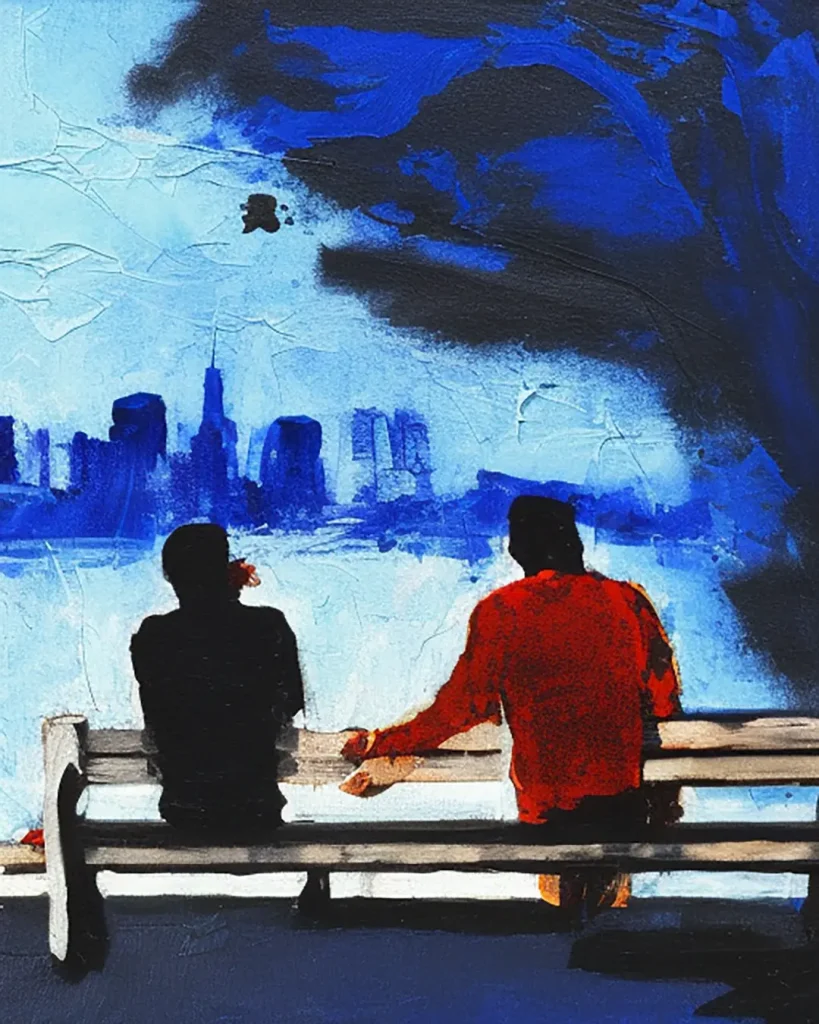

The story of
Marc H.
The view is still the same, the blue of the Alster, the sailboats on the water, and yet nothing is as it used to be.
They used to sit here and laugh when one of the boats already capsized while casting off. Marc and Gerrit, and next to them Nic, the dog. Sometimes they exchanged only 30 words in an evening and still talked to each other. They gossiped about the sailors and argued about soccer: St. Pauli or Schalke.
In the past, when they were both in their mid-20s and homeless. When Gerrit often slept just a few steps away from the bench under the Kennedy Bridge. “Our diving tower,” he calls it because sometimes in the summer they would throw themselves off it and into the water. Maybe six, seven meters deep, he estimates, shrugging his shoulders.
Today, the bench where they used to sit is no longer there. Gerrit squats alone in the grass, wearing a dark St. Pauli shirt, his dog beside him. A husky, just like Nic was.
Gerrit is now 46 years old and lives in Eimsbüttel. The fact that he has seen Marc only rarely in the past ten years is actually a good sign, he thinks. Because Marc had “found his way back to a new life. Gerrit knows that because it was the same for him: When a new door opens, a few old ones close as well.
Marc was buried a few days ago. It is an anonymous grave in the cemetery in Rahlstedt, with neither his name nor the year of birth 1976 on it. Nobody recognizes that Marc has become 44 years old. Of course, no one suspects the ruptures that separated these years into different worlds: his childhood and youth in North Rhine-Westphalia, his refuge to the streets of Hamburg, where he hid and remained homeless for more than a decade. In his last ten years, Marc then led what Gerrit calls a new life: with his own apartment, a steady job, neighbors, and colleagues.
According to Google Maps, it’s an 18-minute walk from their place on the Alster to the Hinz&Kunzt building; at Gerrit’s pace, you can make it in ten. That was the path they walked together almost every evening: 1.9 kilometers, preferably not along the main train station. Marc didn’t want a policeman to ask who he was and where he was from.
As a young man, he had deserted from the German Navy. He had once wanted to become a regular soldier. He liked the sea and had even received a medal for his service during the flood of the Oder River in 1997. But shortly thereafter something must have happened, Gerrit suspects – but Marc never talked about what exactly.
Since then, Marc was homeless, had no contact with his family, and did not work in his skilled profession as a bricklayer. Being recognized might have meant a prison sentence for desertion for him. At the age of 25, he joined Hinz&Kunzt, became a salesman, and later worked at the coffee counter.
Gerrit is now standing in the Hinz&Kunzt courtyard and smoking. “That was the little guy, that sweetheart,” he says about Marc, who wasn’t particularly tall but was quite sturdy. Gerrit jokes that they once wanted to give him a tutu: the man who also went to medieval festivals, listened to rock and metal, and stretched his earlobes with enormous tunnels.
Next to Gerrit is Sigi, who works in the Hinz&Kunzt sales department and with whom Marc had stayed overnight for a while. What kind of guy was he? “A friend through and through,” says Sigi and receives a general nod.
Fred, the salesman, is leaning against the wall. Marc first confided in him why Hamburg had become his hideout. Fred brought him to Hinz&Kunzt and sent him to the cinema so that he could see something different. One winter, they lived next to each other in the winter emergency program, the doors always open to one another because they trusted each other. “He always stood up for his friends,” says Fred.
He and Marc and Gerrit, for a while, saw each other every day.
At one point, Marc learned that he was not wanted for possible desertion and that he could put aside his fear of a prison sentence. In fact, after that everything happened very quickly: In 2011, Hinz&Kunzt found Marc an apartment, and shortly thereafter he found a job in the warehouse of a fashion store through a temporary employment agency. Because they were so happy with him, they soon hired him on a permanent basis. In the mornings, he drove to work with his colleagues, and in the evenings he returned to his apartment in Rahlstedt. He was given the chance of a new life, and he took it.
The street he lived on had little to do with the big city where he once began to hide. In the middle of Hamburg, according to Fred and Gerrit, it was easy for him to remain inconspicuous. But here on the outskirts of town, where people greet each other on the street by name, and people know cars and flowers in the neighborhood?
Marc liked this neighborhood. “The nice one” they called him. His landlords sit in their garden a few weeks after his death and talk about Marc as a particularly pleasant and kind person. They often asked him, when they were standing next to the flowerbed and he was walking to his apartment if he wouldn’t like to come by for a coffee. He had always declined politely. They thought he didn’t want to impose himself.
Because Marc didn’t show up at work on the first day after his vacation, colleagues drove to his home. He hadn’t written anything in their joint Whatsapp group for quite some time, which was unusual for him. They rang his doorbell, and when no one answered, they came again the next day. They called the landlords, who called the police. On April 27th, they found Marc in his apartment. The cause of his death remains unknown.
Marc’s life was anonymous for a long time, but his farewell was not: his colleagues organized a funeral service, with flowers, candles, and a speech. About 20 people were there, from his former life and the new one. Part of his family – his mother and his two brothers. It was Fred who carried Marc’s urn to the grave.
Gerrit could not be there that day. So he lit a candle himself; there, where their bench had stood at that time. He took a photo and sent it to all the people he was aware of who had known Marc.
In the picture, you can see the Alster behind well-worn grass. A sailboat comes into view from the left. Gerrit says that he waited for this moment before releasing the shutter. The moment when one of the sailboats cast off, didn’t capsize, but slid gently onto the Alster.
More about Marc:
Credits:
Text: Anna-Elisa Jakob
